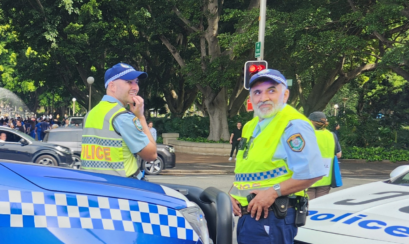It’s a classic plot in movies and novels – a man dies, leaving his family to discover at the funeral that he had a secret second family. Both families turn up to mourn, not aware that the deceased man had another family.
It makes for great drama, but it also creates a legal quandary. Who should inherit the man’s estate?
This happens in real life more often than one would think.
There is even a term for it. It’s known as the pilot scenario, named after a 1998 novel and 2002 movie “The Pilot’s Wife”, where a pilot had secret families living in the cities to which he frequently flew. None of the families knew about the others.
Marriage celebrant hid secret second family in New Zealand
In 2014, there was a matter heard in a Canberra court, where it was found that a marriage celebrant and former priest had failed to divorce his first wife in New Zealand before marrying in Australia. (See Marriage celebrant escapes jail sentence for bigamy after failing to divorce first wife, ABC News, August 2014.)
The former priest divorced his second wife to marry a third, but neither knew he was still married to his first wife. He received a six month suspended sentence for bigamy.
If a bigamist leaves the estate to one family, can the secret second family contest the will?
Bigamy – being married to more than one person at a time – is illegal in Australia. There is a penalty of up to seven years in jail under section 92 of the Crimes Act 1900, and five years under section 94 of the Marriage Act 1961. A possible defence for bigamy is that you reasonably believed the former spouse was dead.
If a bigamist dies leaving their estate to just one family, the secret second family is entitled to claim against the estate, as a de facto and for any children of the relationship, under section 57 of the NSW Succession Act. (For further information please see Contesting a will in NSW – the horror story edition.)
How does the court decide who receives the deceased’s estate?
If there is no will, there is a provision in the Succession Act under Division 3 – Multiple Spouses. Under section 122 to section 132, if there is one spouse with children, then normally the whole estate passes under intestacy law to that spouse.
However, where there are two surviving partners with no children, the estate will be split as agreed in writing between them.
If there are children in both families, the spouses will generally share the entirety of the estate and the children receive nothing.
But if there is no agreement, the court can decide how to distribute the estate, and can even give all of it to one spouse or their children.
What about being married and also having a de facto partner?
While bigamy is illegal in Australia, it is lawful to be married and have more than one de facto partner at the same time. Adultery is not a crime.
Australia abolished adultery as grounds for divorce when the Family Law Act was enacted in 1975. This ended a whole era of photographers bursting through doors to capture the adulterer in action.
It also established the principle of “no-fault” divorce, where the only ground for divorce was the irretrievable breakdown of the relationship, demonstrated by 12 months of separation.














